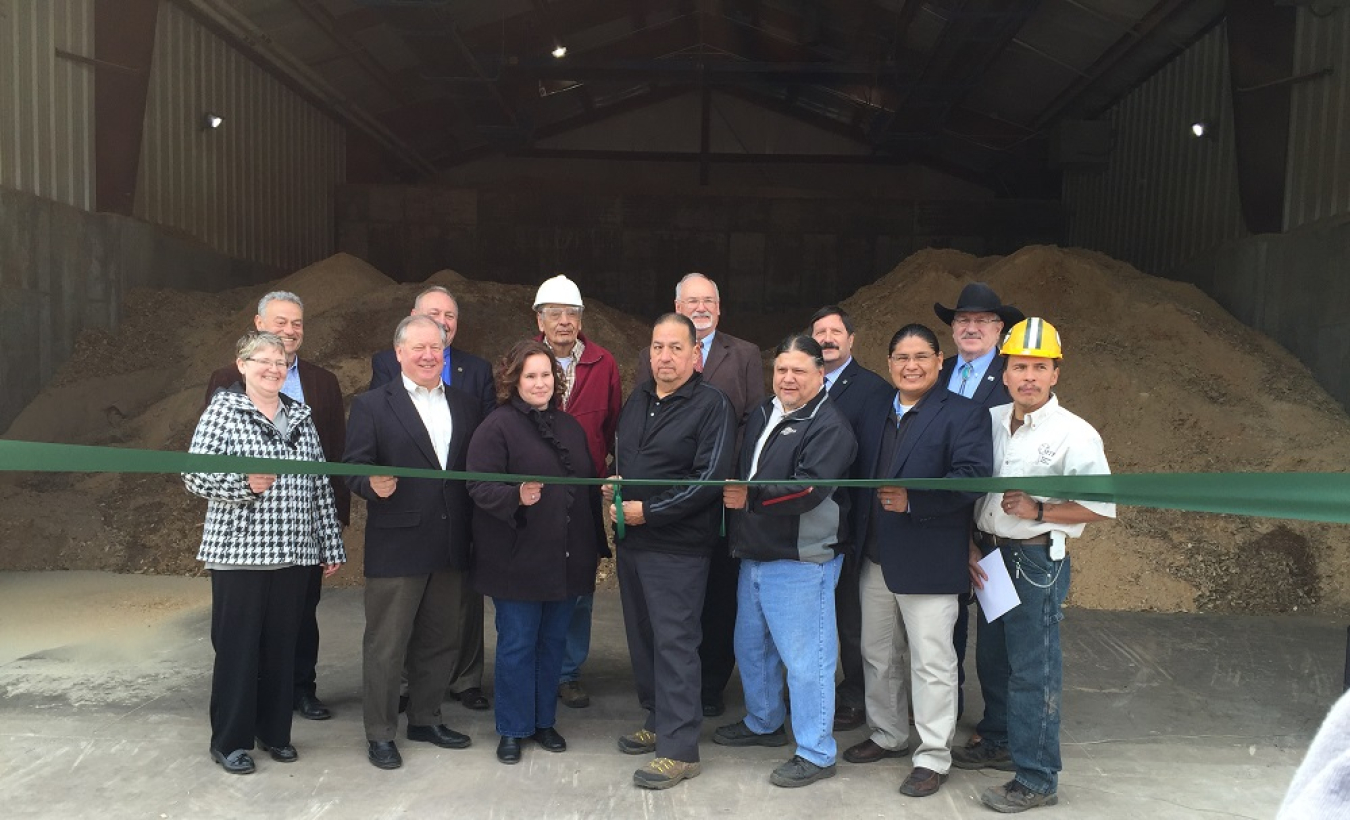
On April 20, Office of Indian Energy Director Chris Deschene joined other key stakeholders for the official opening of the Menominee Tribal Enterprises biomass CHP district energy plant in Wisconsin. Photo from Menominee Tribal Enterprises.
DOE co-funded the $2.065 million Menominee Tribal Enterprises project in Wisconsin, matching the Tribe’s $1.03 million investment to install the new combined heat and power system, which generates steam and electricity using renewable biomass fuel to power the Tribe’s sawmill and lumber drying operation. Photo from Menominee Tribal Enterprises.
On April 20, 2016, Menominee Tribal Enterprises (MTE) celebrated the official opening of its biomass combined heat and power (CHP) district energy plant. MTE is the business arm of the Menominee Indian Tribe of Wisconsin, located approximately 45 miles northwest of Green Bay.
Since 1908, MTE has been committed to producing and manufacturing sustainable forest products. As a way to hedge against volatile fossil fuel prices while advancing its mission of sustainability, MTE is working to reduce its carbon footprint through the use of clean renewable fuels. The new biomass CHP plant represents MTE's largest step yet toward achieving this goal.
In 2014 the U.S. Department of Energy (DOE) co-funded the $2.065 million MTE project (matching MTE’s $1.03 million investment) to install the new CHP system, which generates steam and electricity using renewable biomass fuel to power the Tribe’s sawmill and lumber drying operation.
“Energy is integral to real and sustainable solutions to improving the quality of life in tribal communities,” said DOE Office of Indian Energy Director Chris Deschene, who spoke at the opening ceremony. “This project is a shining example of how tribes are leveraging DOE support to harness their indigenous renewable energy resources, reduce their energy costs, create jobs, build resilience, and implement successful strategic energy solutions.”
By offsetting fossil fuel-based electricity purchased from the utility with renewable electricity generated by MTE, the project will help the Menominee Indian Tribe:
- Increase energy independence and reduce its carbon footprint
- Realize annual energy cost savings on electricity
- Improve MTE economic competitiveness and continue to provide sustainable jobs for the Menominee Indian Tribe
- Reduce emissions and improve local air quality.
In addition, the planned use of wood waste from the Tribe’s sawmill creates a steady fuel stream for the plant with long-term predictable costs, eliminating one of the biggest barriers to developing biomass projects.
Learn more about the Menominee Tribal Enterprises District Biomass Combined Heat and Power Project.
Project Benefits
- Generate an estimated 1,020,217 kilowatt-hours of renewable electricity per year—equivalent to the annual electricity use of 97 homes
- Save approximately $405,000 in annual operating costs
- Reduce biomass fuel use by 11,378 tons per year
- Reduce particulate matter emissions by an estimated 118 tons per year
- Increase competiveness by lowering operating costs
- Create 34 FTE jobs during construction
